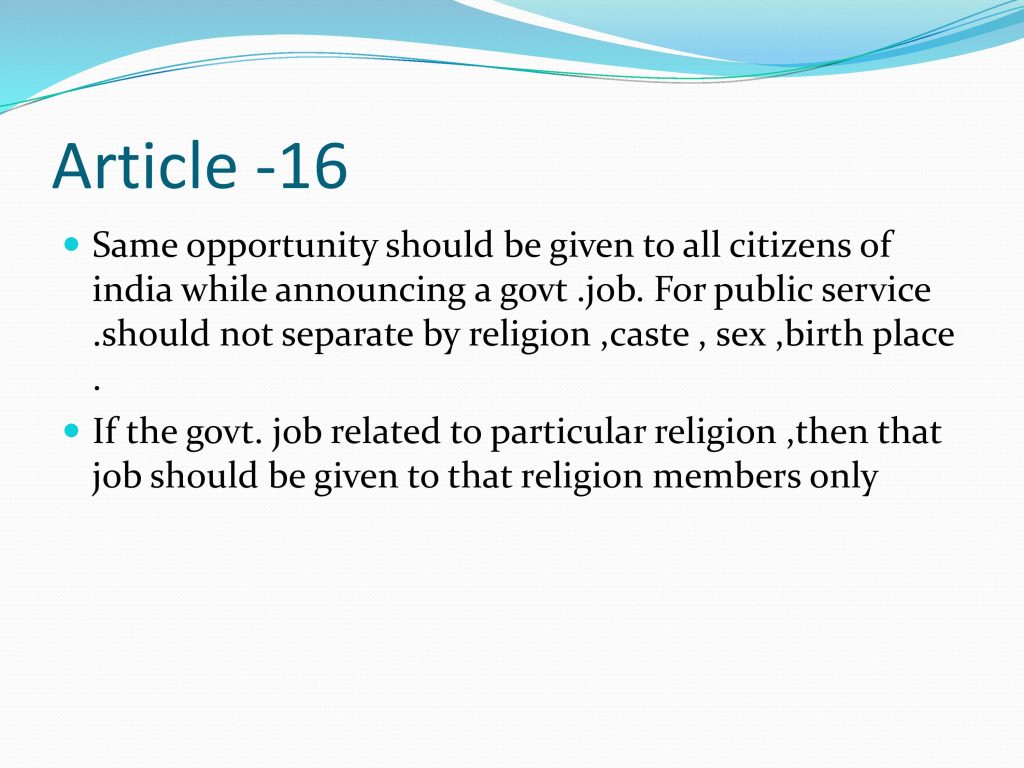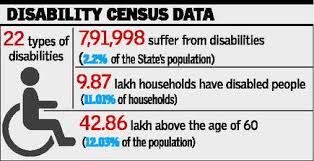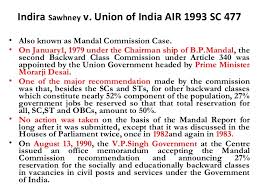Relevance: Mains: G.S paper II: Indian Polity: Constitution
Why in news?
- A three-judge Bench of the Supreme Court has granted relief to persons with disabilities across the country by allowing reservation in promotion in all groups for those employed in public sector jobs.
Key facts:
- The Bench led by Justice Rohinton F. Nariman confirmed that 3% reservation should be given to disabled persons both in direct
recruitment and in promotions. - The judgment confirms a 2016 verdict of the top court in Rajeev Kumar Gupta’s case that granted reservation in promotion to disabled persons employed in Groups A and B in addition to Groups C and D categories in the public sector.
- The 2016 judgment had held that wherever posts were identified to be suitable for persons with disabilities, 3% reservation must be given.
- The government had however challenged the 2016 judgement, leading to the reference to the larger Bench.
- The government had referred to the Indira Sawhney case, which had capped reservation at 50% and prohibited reservation in promotions.
Background:
- The Constitution only prohibits preferential treatment on the basis of caste or religion. Here, reservation is contemplated for disabled persons.
- The rule of no reservation in promotions laid down in the Indra Sawhney judgmeny has clearly and normatively no application in this case.
- The top court said, “A perusal of Indra Sawhney would reveal that the ceiling of 50% reservation applies only to reservation in favour of Other Backward Classes under Article 16(4) of the Constitution of India whereas the reservation in favour of persons with disabilities is horizontal, which is under Article 16(1) of the Constitution.”
- Justice Nariman pointed to how the 1995 law emphasises that “employment is a key factor in the empowerment and inclusion of people with disabilities”.
Article 16 of Indian Constitution talks about Equality of opportunity in matters of public employment.
Equality of opportunity in matters of public employment
- There shall be equality of opportunity for all citizens in matters relating to employment or appointment to any office under the State
- No citizen shall, on grounds only of religion, race, caste, sex, descent, place of birth, residence or any of them, be ineligible for, or discriminated against in respect or, any employment or office under the State
- Nothing in this article shall prevent Parliament from making any law prescribing, in regard to a class or classes of employment or appointment to an office under the Government of, or any local or other authority within, a State or Union territory, any requirement as to residence within that State or Union territory prior to such employment or appointment
- Nothing in this article shall prevent the State from making any provision for the reservation of appointments or posts in favor of any backward class of citizens which, in the opinion of the State, is not adequately represented in the services under the State
- Nothing in this article shall affect the operation of any law which provides that the incumbent of an office in connection with the affairs of any religious or denominational institution or any member of the governing body thereof shall be a person professing a particular religion or belonging to a particular denomination
Article 16(1) of Indian constitution
Article 16 of the Indian Constitution –Clause (1) lays down the general rule that there shall be equal opportunity for citizens in matters relating to ”employment” or ”appointment to any office” under the State.
It gives the right only to equal opportunity, i.e. the right to be considered for employment or appointment. It does not give the right to be employed or appointed to any office under the State.
The rule applies only in respect of employment or offices which are held under the State, i.e. in respect of persons holding office as subordinate to the State.
What is guaranteed is the equality of opportunity.
The clause accordingly, does not prevent the State from laying down the requisite qualifications for recruitment for government services, and it is open to the authority to lay down such other conditions of appointment as would be conducive to the maintenance of proper discipline among government servants.
Like all other employers, the government is also entitled to pick and choose from amongst a large number of candidates offering themselves for employment.
long as an applicant, along with others, has been given his chance, it cannot be said that he did not have an equal opportunity along with others, who may have been selected in preference to him.
While Article 16 clause (1) does not preclude an administrative authority from making a selection from numerous candidates offering themselves for employment, the selection test must not be arbitrary.
If the selection test is not based upon some reasonable principle that has a nexus with the efficient performance of the duties and obligations of the particular office, the rule of equal opportunity for employment under the State would be violated.





Hi, This is sujal goyal
Sir i have a question is there reservation of general class disables for ias
Yes